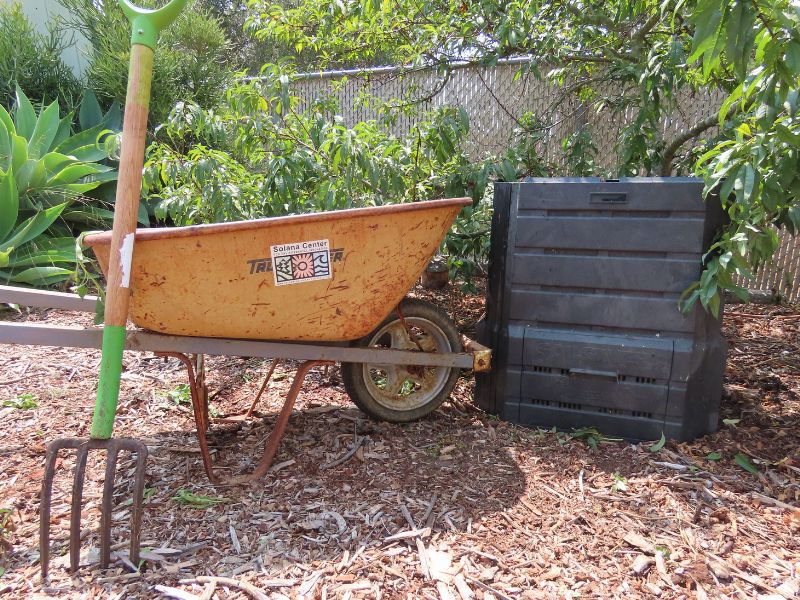Is it Compostable? A Reference List of Compostable Items Often Asked About

Question:
What items can I safely put in my compost bin?
Answer:
This is a list of items that the average backyard composter can feel comfortable adding to their compost bin. We will address materials for the adventurous or more experienced composter in a future blog post.
COMPOST THESE:
- Raw vegetable and fruit waste*
- Cooked foods, ex) plate scrapings*
- Moldy foods from the back of the fridge*
- Wine, beer, and liquor*
- Liquid from canned fruits and vegetables*
- Old herbs and spices
- Coffee grounds, paper coffee filters, tea leaves, and paper teabags (some are made from plastic mesh; if you can rip it open easily, it’s made from paper)
- Hair and nail clippings
- Feathers and fur from pets
- Old ropes and cloth made of natural fibers such as wool, cotton, and hemp
- Cotton balls and swabs made from 100 percent cotton and paper (for swab sticks)
- Natural corks from wine bottles (many are made from plastic, so check carefully)
- Unwanted potting soil
- Leaves, trigs, and plant cuttings
- Straw (animal bedding)
- Wood matches, toothpicks, and bamboo skewers
- Shredded plain paper (think: bills and credit card statements; it’s okay if it’s written or printed on since pencil leads and pen/printer inks are biodegradeable)
- Cardboard and newspaper
- Used paper towels, napkins, and tissues, not used to clean up toxic chemicals
- Dry pet food
- Nuts and their shells (excluding black walnut)
- Algae, seaweed, and kelp
- White glue (such as Elmer’s), papier-mâché and masking tape
- Plant-based cellophane (not plastic wrap)
- Natural loofahs and sea sponges
- Silk-based dental floss
- Dryer lint
*Materials with an asterisk may attract pests. You can deter pests by covering these materials with a thick layer of browns or burying at the center of your pile.
COMPOST WITH CONSIDERATIONS:
- Dryer lint- Many clothes are made from synthetic fibers which are not biodegradeable
- Soaps and Shampoos- only if they are biodegradable
- Weed seeds- only compost if your pile gets to hot temperatures. Hay also falls under this category as it contains seeds.
- Baked goods (including cooked grains, rice and pasta, which can be a breeding ground for bacteria and attract pests)- only compost it if your pile reaches hot temperatures
- Evergreen tree needles, palm leaves and trunks, pine cones, and seed pods like those from jacaranda or liquid amber. These often take a considerable amount of time to break down and pine cones/liquidambar seeds can become a trip hazard around your compost bin. Leave needles and palm leaves in the sun to dry out for as long as possible before adding to compost.
- Meats, bones, and dairy – Should only be hot composted to kill pathogens; best if done in conjunction with bokashi. Note that these often carry increased risk of pests and odors.
DO NOT ADD THESE:
- Plastics – They won’t harm your compost, but they won’t break down, either
- Toxic plants:
- Black-walnut tree leaves or twigs, oleander or eucalyptus leaves
- Wax (will coagulate/harden after your pile cools down)
- Feces from humans and other omnivorous/carnivorous animals such as cats, dogs, most reptiles, etc.
- Diseased/insect-ridden plants or plants that propagate through roots (crab or bermuda grass, bamboo, field bindweed). They can fluorish in your compost pile and be transferred back into your garden.
- Glossy magazines, wrapping paper that may be coated in wax or other synthetic materials and paper that’s covered with inks or dyes (for instance, the ink from Rollerball pens and Sharpies are toxic). Recycle these items instead.
- Used personal hygiene items such as diapers and feminine products
- Coated cardboard, paper cups, milk cartons and juice boxes. These are often lined with wax, plastic, or other synthetic chemicals.
- Leather goods, including belts and gloves. In theory, they’ll decompose, but it will take many, many years.
- Charcoal ash from your grill and treated woods, which both contain toxic chemicals
- Large amounts of cooking oil (anything more than a couple tablespoons)
